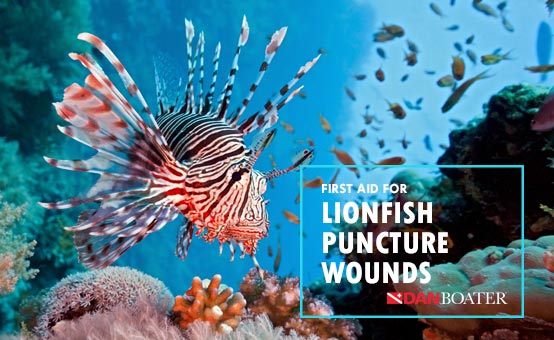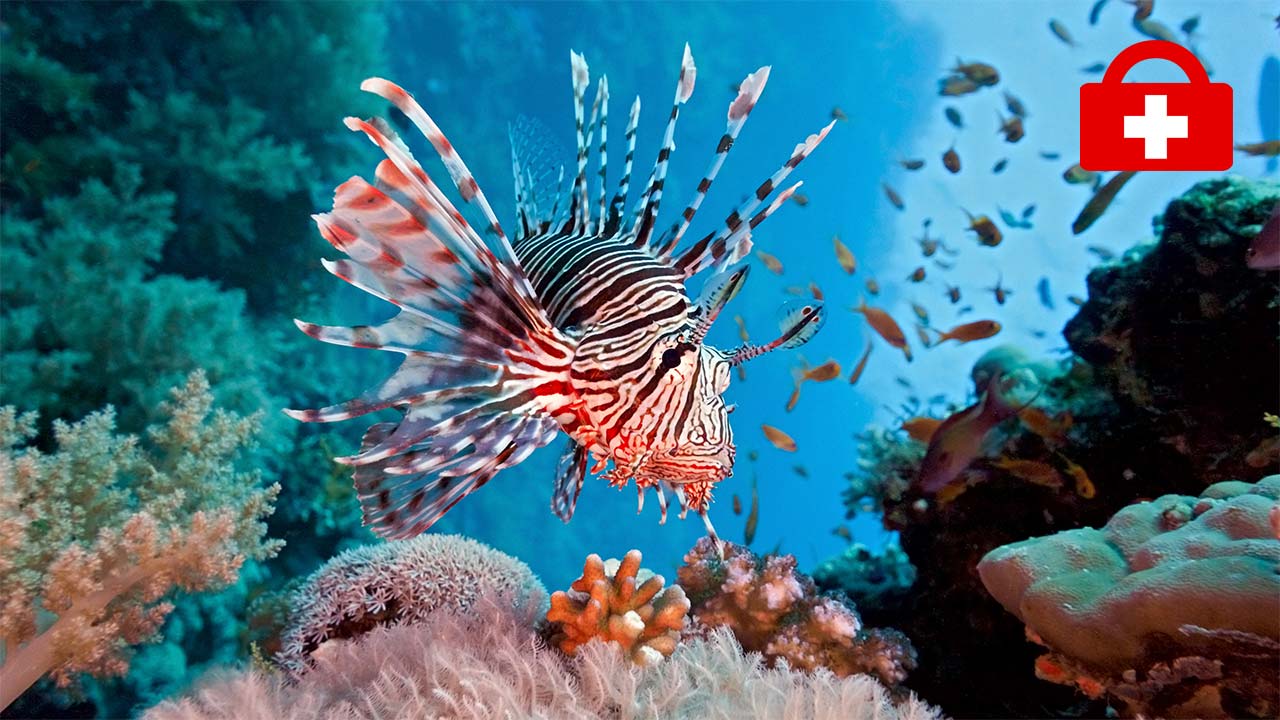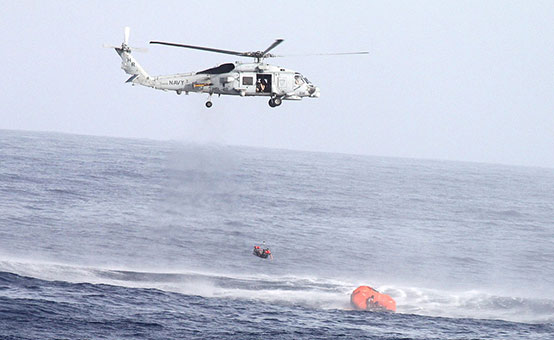

Lionfish punctures, which are commonly referred to as lionfish "stings", can be extremely painful and lead to the rapid development of localized edema and subcutaneous bleeding. Pain can last for several hours, edema typically resolves in two to three days, and tissue discoloration can last up to four or five days. Due to edema and the venom’s inherent toxicity, puncture wounds on fingers can lead to ischemia and necrosis.
Although lionfish are not aggressive, it's always a good idea to maintain a prudent distance. If you engage in spearfishing or culling activities, avoid improvisations, and do not try to handle these animals until you learn from people who are more experienced.
MORE FROM
SAFE PASSAGE

BOATING SAFETY | Jan 23, 2019
Rescue at Sea: 20 Things You Can Do Right Now To Be Better Prepared

BOATING SAFETY | AUG 7, 2018
Everything You Need to Pack the Perfect Ditch Bag
THIS WEBSITE DOES NOT PROVIDE MEDICAL OR DENTAL ADVICE.
It is intended for general informational purposes only and does not address individual circumstances. It is not a substitute for professional medical or dental advice, diagnosis or treatment and should not be relied on to make decisions about your health. Never ignore professional medical or dental advice in seeking treatment because of something you have read on the DAN Boater website. If you think you may have a medical emergency, immediately call your doctor, dial 911, or contact emergency services nearest you.